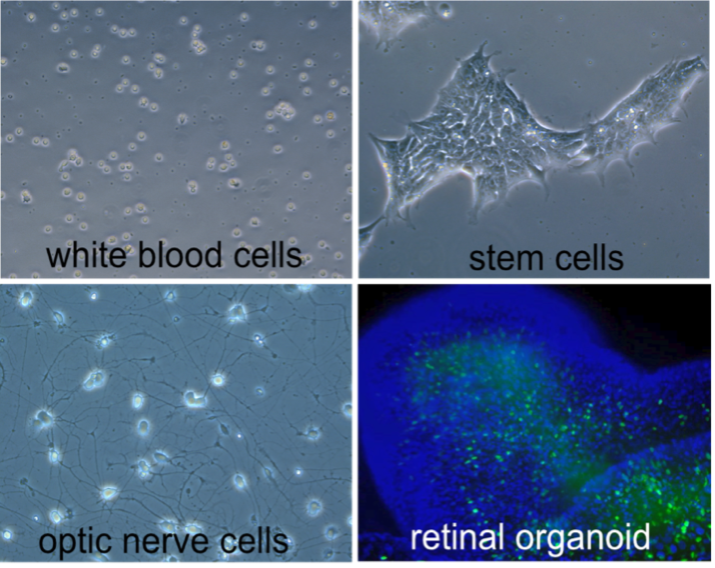
Glaucoma is caused by damage to the optic nerve and can progressively lead to complete vision loss. It is the leading cause of irreversible blindness in people over 60 worldwide. SEI researchers are investigating multiple potential treatments including utilizing stem cells to promote optic nerve regeneration.
As part of the Gleiberman initiative, Karl Wahlin, PhD, Associate Professor of Ophthalmology, is investigating endogenous regeneration to restore optic nerve cells, also known as retinal ganglion cells (RGCs). RGCs are important because they send visual information from the retina to the brain. Wahlin and his team are creating RGCs in the eye by reprogramming other cells in the retina (the light-sensitive part of the eye).

The Wahlin team tracks Müller cells, a support cell in the retina. They want to find out when they mature in human eye tissue grown in the lab (called organoids). Utilizing CRISPR (a technology used to alter the DNA), they then attempt to make Müller cells turn into RGCs. The team’s next step is to utilize adeno-associated viruses to deliver the factors that help reprogram the Müller cells into new RGCs.
This research is just the first step in turning Müller cells into new retinal ganglion cells that could help save and restore vision in the future.
